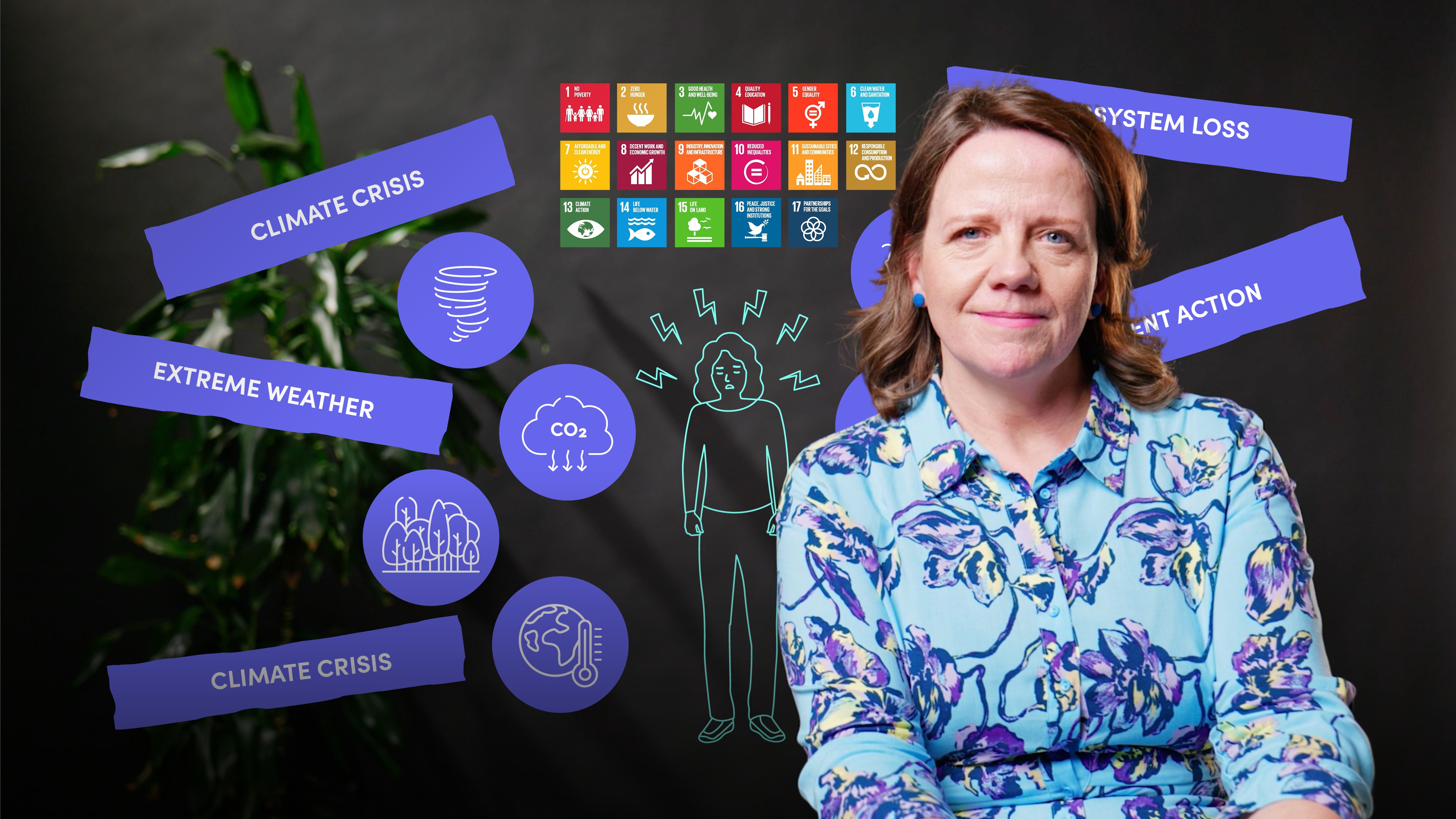
Communicating Climate Change Effectively

Liz Bentley
25 years: Meteorologist
The climate crisis is the biggest challenge humanity has ever faced. How can we get people to understand this? Join Liz Bentley as she explores communication and engagement.
The climate crisis is the biggest challenge humanity has ever faced. How can we get people to understand this? Join Liz Bentley as she explores communication and engagement.
Subscribe to watch
Access this and all of the content on our platform by signing up for a 7-day free trial.

Communicating Climate Change Effectively
14 mins 9 secs
Climate change communication is about educating, informing, warning, persuading, and solving. But there are barriers to break down before we start - including a lack of knowledge about the basic science and cause and impacts, as well as structural economic and social barriers. We need to start thinking critically about the words, images and videos we use. Avoid jargon or technical terms if this is not appropriate - the average person is likely to take away a different meaning than a climate scientist. Make sure you use appropriate images to match headlines. For example, when talking about fatal heatwaves, avoid using images of people flooding the beach for ice cream, swimming and sunbathing. Lastly, use objective and scientific sources. This will increase trust in the messengers and can avoid misinformation and greenwashing.
Key learning objectives:
Understand the barriers to climate change communication
Outline ways to avoid language and image pitfalls
Subscribe to watch
Access this and all of the content on our platform by signing up for a 7-day free trial.
What are the barriers to communicating climate change?
The first barrier is a lack of knowledge. For example, not understanding the basic science, the causes and impacts, future climate projections, and not knowing what action to take. Other barriers include social, economic and structural barriers. For example, the cost of low-carbon alternatives and a lack of enabling initiatives and facilities.
What should we remember about images when showing climate change?
Images need to be factual, relevant and emotionally impactful. They should include people-centred narratives, offer positive solutions and resonate with the viewer. So, the images and videos need to include real people, local impacts and current extremes.
What should we remember about language when talking about climate change?
Avoid jargon or technical terms if this is not appropriate - sometimes words can mean different things to different audiences. Climate scientists will talk about uncertainty to describe the degree with which something is known. Whereas to other audiences, uncertainty is a sense of not knowing something. Words such as ‘climate’ or statements like ‘limiting global warming to 1.5°C’ can be hard for people to relate to. So use words or impacts that are more relevant to your audience, such as reduction in air pollution, economic growth, green jobs, or reliable energy sources.
Where should we source our climate change information from?
When sharing information, make sure it comes from a reliable, scientific, and objective source to ensure it is not influenced by financial or political incentives. When reviewing or sharing information, check where it came from, what sources it is based on, who paid for it, and who might be profiting from it.
Peer-reviewed articles generally provide the most reliable information as the peer review process means that there has been an evaluation of the scientific work by experts in the same field before publication. Be careful with new breakthrough studies – one new scientific theory might not change our opinion but it is an important part of scientific understanding and reasoning.
Authoritative sources include the United Nations Intergovernmental Panel on Climate Change (IPCC) which provides synthesis reports after undertaking comprehensive assessments of thousands of peer-reviewed papers. Trusted messengers include CarbonBrief which publishes science explainers, interviews, analysis and fact checks.
What is the danger of miscommunication and greenwashing?
Deceptive and misleading content distorts the perception of climate science and solutions, creates confusion, and leads to delays in action or harmful actions. An example of a misinformation narrative is when someone presents climate action as necessary, but there is no urgency as it is a problem for somewhere in the future. To avoid greenwashing, verify what a company is really doing through websites like ZeroTracker.
How can we empower audiences?
Whilst it is important to communicate the scale of the climate crisis, it can feel overwhelming and leave your audience feeling anxious or apathetic. One way to avoid disillusionment and crisis fatigue is to provide empowering messages based on solutions.
1. Building relationships and understanding concerns can forge emotive connections. Engaging your audience with relatable, local and personal information can make shared global challenges seem less daunting.
2. Inform your audience that they have the power to influence change. Every action and choice we make matters. Every tonne of greenhouse gas we prevent will make a difference.
3. Individuals can help drive change through their voices and actions - by calling for action by governments and businesses and changing their own consumption behaviours.
Subscribe to watch
Access this and all of the content on our platform by signing up for a 7-day free trial.

Liz Bentley
There are no available videos from "Liz Bentley"





























